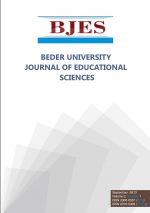
Using Play as Strategy for Language Development in Infants
Abstract
Infants learn new words by listening to the speeches they hear from parents and other adults. Even though not much is known about the degree to which these words are meaningful for young infants, the words still play a role in early language development. Words guide the infants to their irst synaptic intuitions and in the development of the lexicon and it may help infants learn phonetic categories. The focus here is to glorify the intervention between cognition and language development through play during the irst two years of the child’s existence. The three major questions on the list of indings is: 1. How do babies learn? 2. How do babies develop a language through play? 3. How do the variables interact? Studying how infants learn and what they already know requires an understanding of the manner in which babies generalize information from one situation to another, develop abstract concepts and form categories which provide coherence to a baby’s world. Studying how infants develop a language needs an understanding of how babies develop words for objects and actions. In understanding how language and learning interact in every day circumstance as it relates to infants, one needs to understand how babies learn words and how learning language helps to solidify what babies already know. Perhaps also how it leads babies to learn what they may not have learned otherwise.
Keywords
Play; Language Development; Infants
Authors
Florence A. UNDIYAUNDEYE
Download Article

This work is licensed under a Creative Commons Attribution 4.0 International License.
Warning: mysql_free_result() expects parameter 1 to be resource, null given in /var/www/journals/bjes.beder.edu.al/article.php on line 45